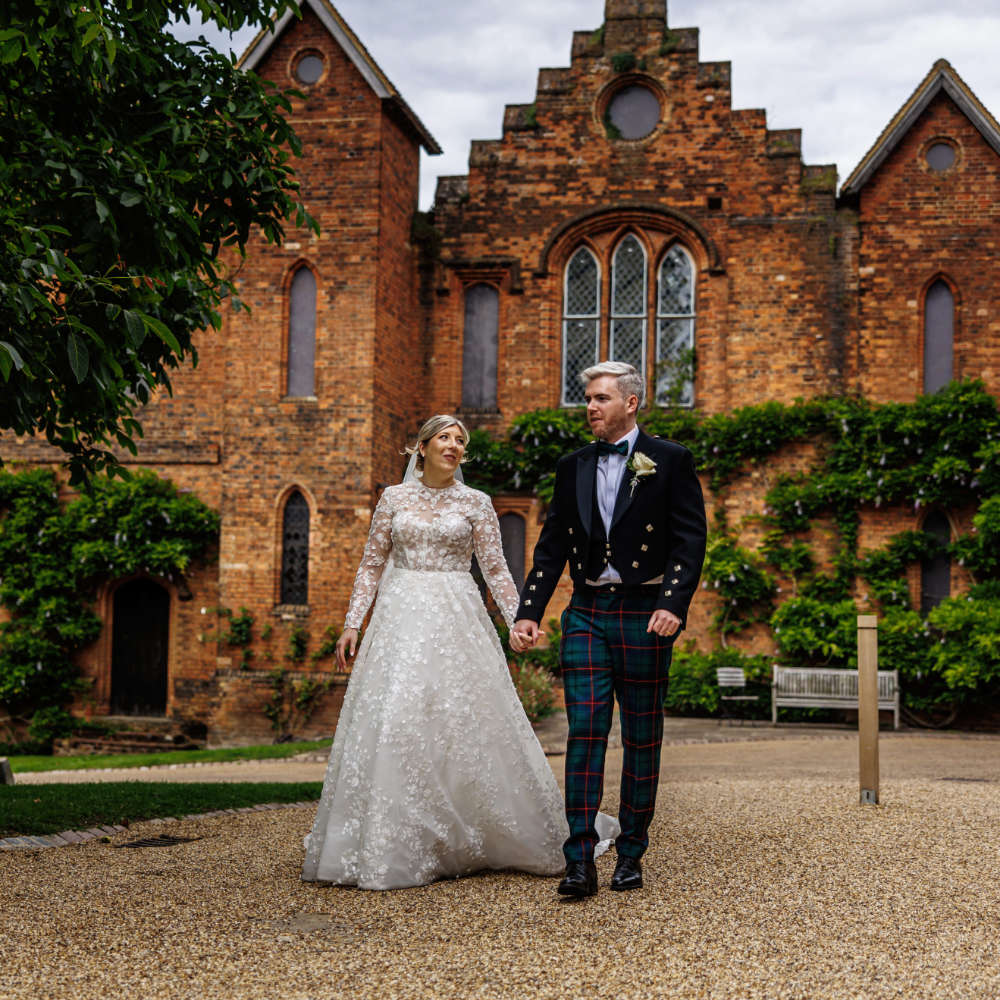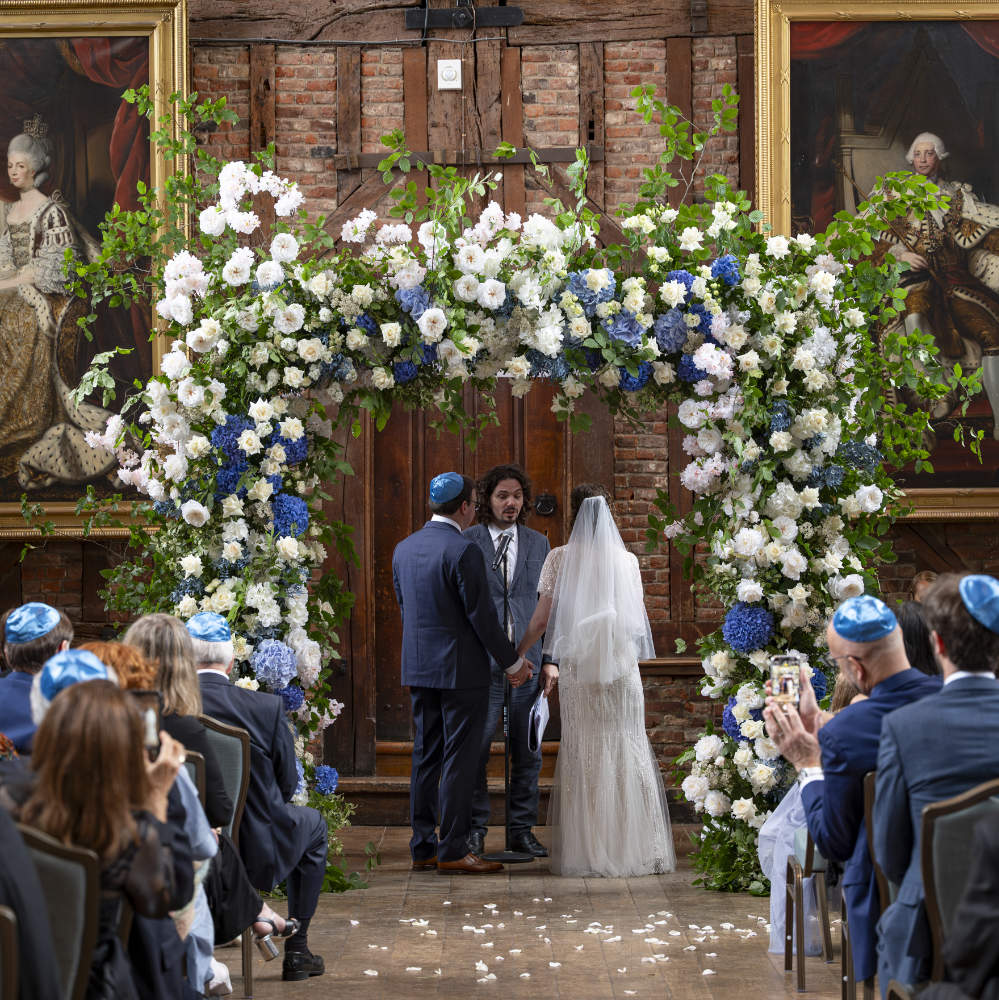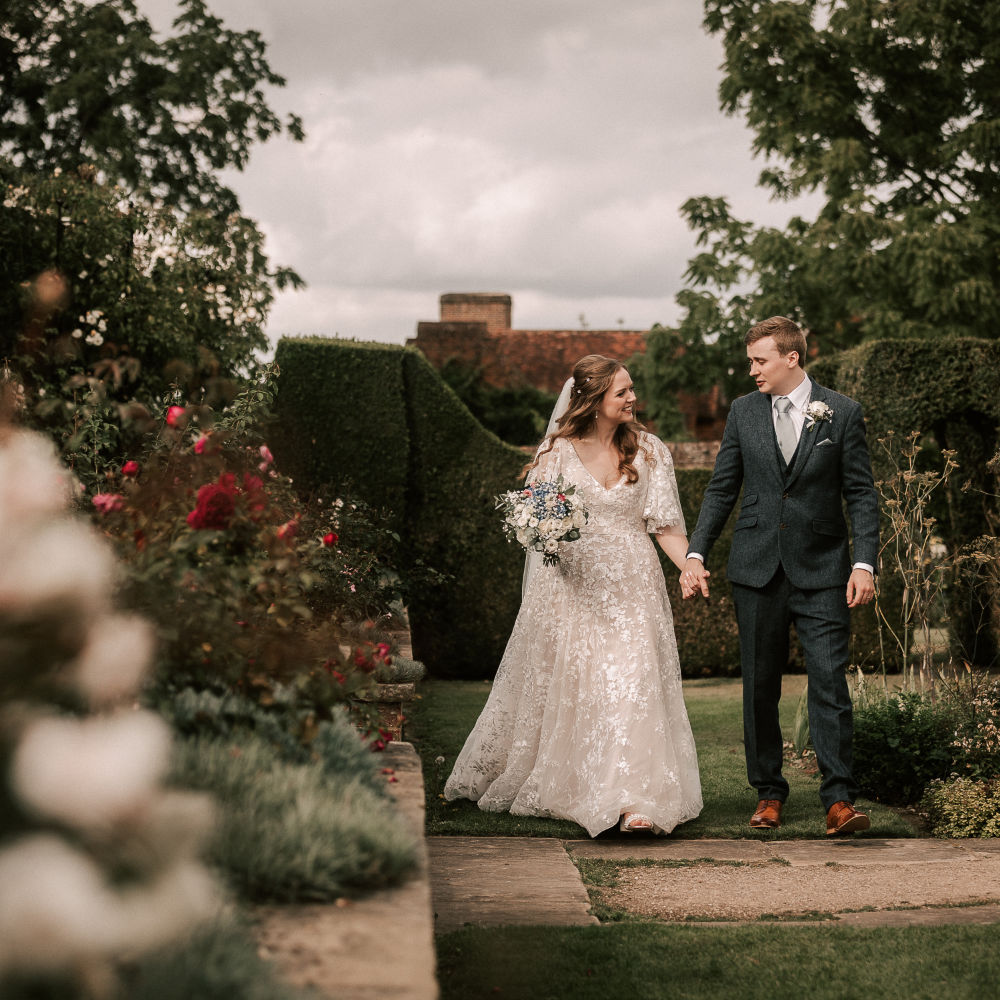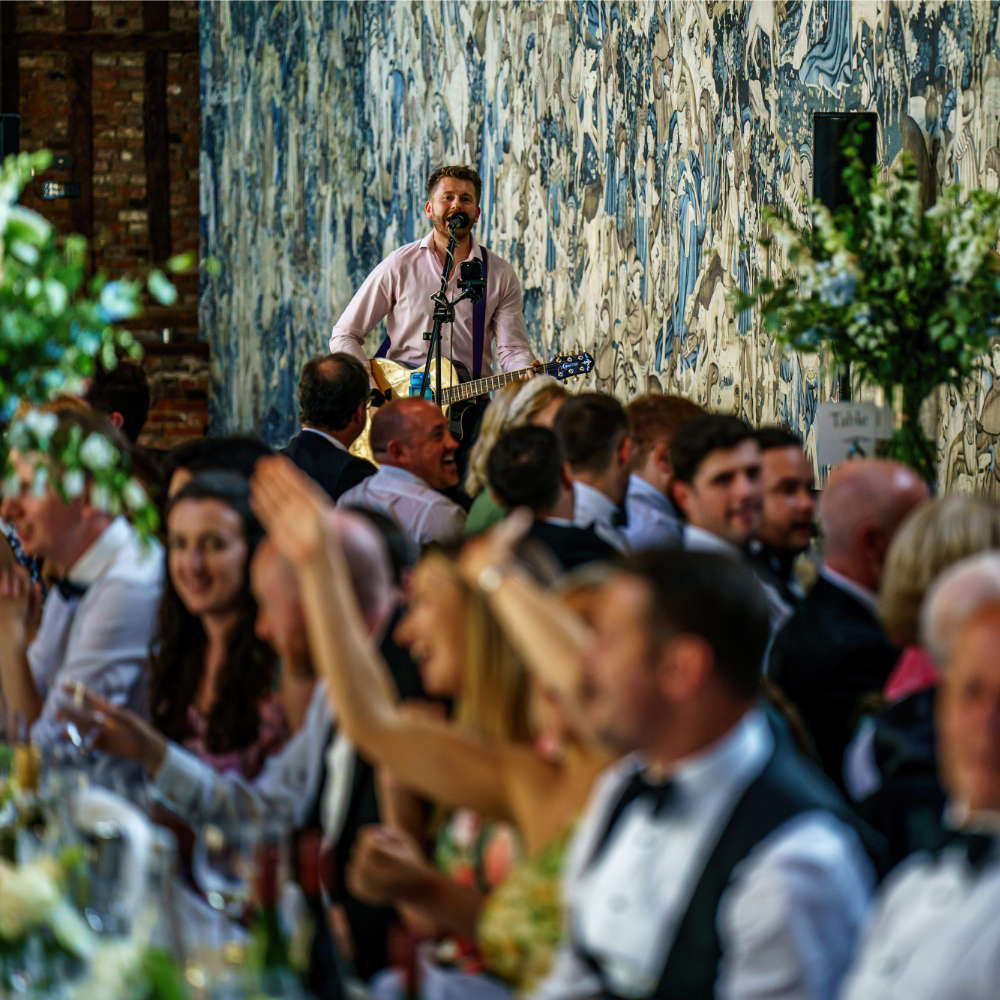Modern Approaches & Flexible Roles
Many couples today are choosing to do things their own way, rather than sticking to old traditions. They want their wedding to match who they are and what they believe in.
Here are some examples of how couples are making their weddings more modern and flexible:
- People are giving wedding roles to friends and family, no matter their gender. For example, you might have a man of honour instead of a maid of honour, or women as groomsmen. This makes the wedding party more inclusive.
- Some couples share responsibilities instead of sticking to set roles. For instance, both parents might walk the bride down the aisle, or several people might give speeches or toasts.
- Some couples decide not to have certain roles at all, like skipping a formal bridal party, to keep things simple and focus on the celebration.
- Couples are involving more friends and family in creative ways. This could mean having a group of friends do a reading, or helping out with a special part of the ceremony or party.
- Many couples blend different customs, personal rituals, and new ideas to create a wedding that feels special and unique to them.
The key is to make sure everyone understands their role and responsibilities, so they can contribute confidently.
Planning a relaxed, free-spirited celebration? Read our guide to creating a boho wedding.
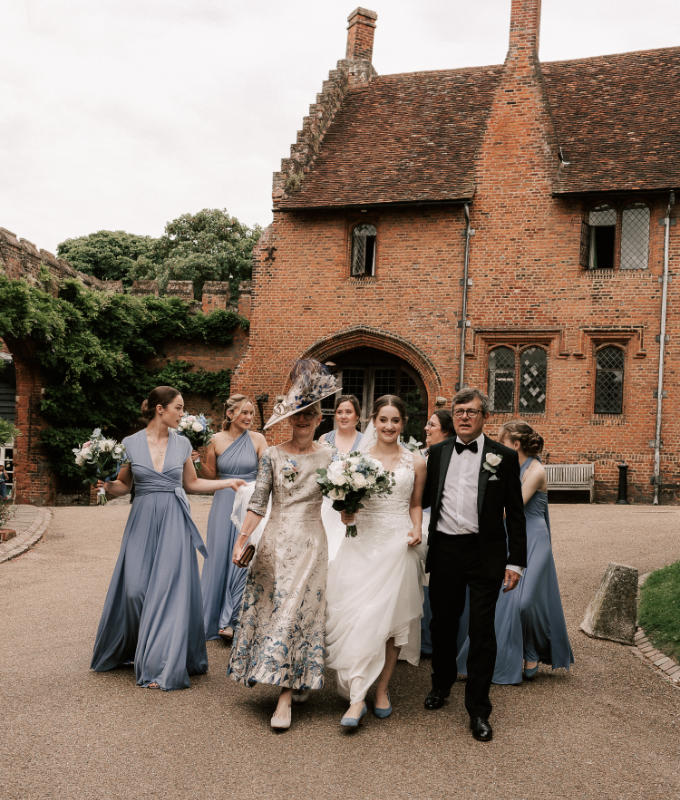
Photograph courtesy of @fairytaleweddingphotos
Roles in the Wedding
These roles are generally found in traditional weddings, although couples often personalise their approach.
The Wedding Couple
While your support network plays a significant role, much of the decision-making rests with the wedding couple themselves.
Main Responsibilities:
- Choosing the wedding venue, guest list, and wedding party.
- Deciding on the vision for the wedding day, from the venue and guest list to the overall aesthetic.
- Sharing ideas and plans with the wedding party organisers and suppliers so that every detail reflects your preferences.
- Supporting each other through the planning journey, making decisions together.
Couples can divide tasks based on what each person is good at or enjoys – whether that’s budgeting, organising the wedding party, or designing the perfect flower arrangements.
The Wedding Party
Your wedding party is your closest group of friends and family – the people who offer practical and emotional support, and stand by your side on your wedding day.
Maid/Matron of Honour or Chief Bridesmaid
The maid of honour is usually the lead support for the bride and bridal party.
Main Responsibilities:
- Organising the hen party or pre-wedding celebrations for the bride.
- Helping to choose bridesmaid outfits and accessories.
- Holding the bride’s bouquet during the wedding ceremony.
- Providing emotional support and keeping things running smoothly on the day.
Bridesmaids
Chosen by the bride, bridesmaids offer support before and during the wedding.
Main Responsibilities:
- Assisting with wedding and bridesmaid dress shopping and attending fittings.
- Helping with wedding decor, planning, or errands for the bride.
- Walking down the aisle and posing for group photographs.
- Supporting the couple throughout the day.
Best Man
The best man is traditionally the groom’s right-hand man, standing by his side throughout the wedding.
Main Responsibilities:
- Organising a stag party for the groom.
- Keeping the wedding rings safe before the ceremony.
- Giving a speech during the reception.
- Helping the groom with practical tasks and emotional support.
- Helping to manage the groomsmen and key logistics.
Groomsmen
The groomsmen typically help to keep things running smoothly on the wedding day.
Main Responsibilities:
- Welcoming and seating guests for the ceremony.
- Distributing orders of service or confetti.
- Supporting the groom with preparations.
- Helping the best man manage practicalities on the wedding day.
Flower Girls and Page Boys
These younger members of the bridal party take part in the wedding ceremony.
Typical Duties:
- Walking ahead of the couple during the procession.
- Carrying flower petals, signs, or rings.
- Creating memorable, sweet moments during the ceremony.
Some couples invite their own children, nieces and nephews, godchildren, or friends’ children, while others prefer to skip this role entirely.
Parental Roles
Parents also have traditional roles in the celebration, but expectations vary depending on family dynamics.
Traditionally, the bride’s parents, including the mother, are considered hosts of the wedding. They welcome guests and ensure that everyone has a good time.
Mother of the Bride
The mother of the bride typically provides practical and emotional support to the bride.
Her duties often include:
- Helping the couple to curate the guest list.
- Helping to find wedding vendors and liaising with them to ensure everything runs smoothly, freeing the bride from logistical concerns.
- Supporting the bride in finding the perfect wedding dress.
- Offering thoughtful advice throughout the process.
- The mother of the bride might host or help plan pre-wedding events such as a bridal shower.
Father of the Bride
The father of the bride also typically plays a key role in a wedding. Here are some of the ways he might contribute:
- Escorting the bride down the aisle during the ceremony symbolises the transition from the bride’s family to her new life.
- Greet guests as they arrive at the reception, ensuring everyone feels welcomed and comfortable.
- Giving a speech or toast at the reception, often sharing stories about the bride, and celebrating the couple.
- There is often a father-daughter dance during the reception.
Parents of the Groom
The groom’s mother also plays an integral role in welcoming guests and supporting the couple. Her responsibilities may vary based on the couple’s preferences, from hosting duties to offering planning support as needed.
Like the father of the bride, the father of the groom also supports the couple throughout the day and helps with practicalities.
The parents of the groom may have designated roles during the ceremony, such as participating in a special cultural or religious tradition.
They might also assist with logistics on the wedding day, such as coordinating transportation or managing timelines.
The parents of both the bride and groom might also help to coordinate the wedding photographer on the wedding day, along with the assistance of the best man. For instance, they might help to gather family members for group photos, ensuring that everyone needed for a particular shot is present and ready.
Other Important Roles
Not all roles need to be filled, but they can add meaningful structure to your celebration.
Master of Ceremonies
The master of ceremonies (MC), or toastmaster, helps to ensure that a wedding goes seamlessly. The best man sometimes takes on this role, assisted by the groomsmen.
Their responsibilities can include keeping events on schedule, announcing key moments, such as the couple’s first dance or the beginning of speeches, and guiding guests through the day’s events
Readers
A reader delivers selected readings that are significant to the couple during the ceremony. Consider choosing loved ones who are confident in speaking in front of a crowd and who connect with the reading’s meaning.
Readings often include religious texts, such as excerpts from the Bible, meaningful poems, and non-religious readings about love, such as Shakespeare’s Sonnet 116.
Witnesses
Witnesses play a legal role in the wedding celebration, signing the marriage register and being legally present at the ceremony. Being a witness is typically considered a special honour, and couples generally pick trusted friends or family members.
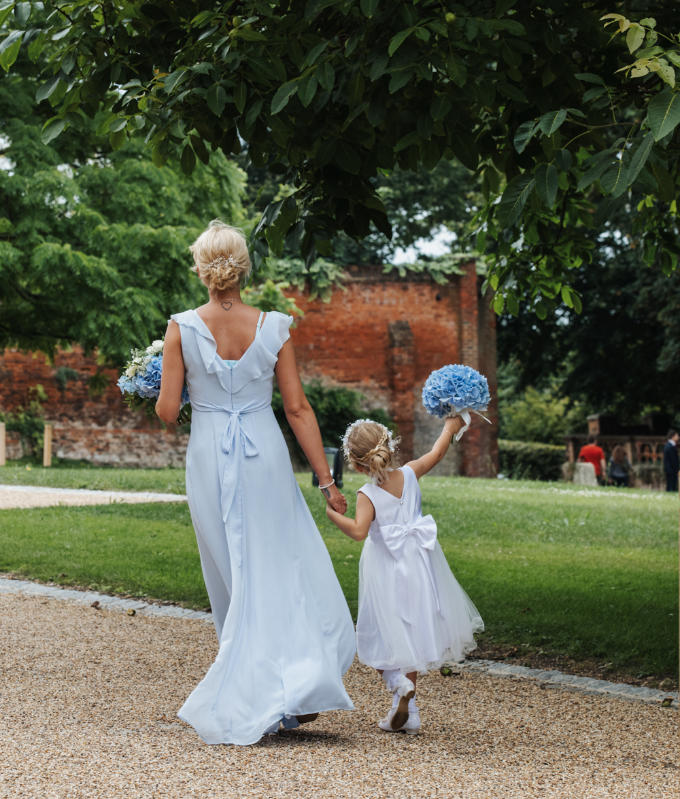
Photograph courtesy of Emma Hurley Photography
Tips for Assigning Roles & Communicating Expectations
Picking who does what at your wedding can be exciting, but also a bit stressful. Here are some tips that can help:
- Choose people who know you well and will make your day happy and fun.
- Let each person know why you chose them for their role and what you appreciate about them.
- Be clear about what you expect, and share any important dates or tasks.
- Think about what each person is good at and what they’re comfortable doing, so everyone feels important.
- Don’t feel like you have to follow old traditions – pick the people who matter most to you.
- After the wedding, consider giving your wedding party a small thank-you gift or note to show your appreciation.
There’s no right or wrong way to assign wedding roles. What matters is that it feels right for you. Once you’ve chosen everyone’s roles, you can focus on other fun parts of planning your wedding, like picking and decorating the venue.
At Hatfield Park, you can explore a variety of spaces that suit your wedding needs, from the historic Old Palace to the more modern Riding School and stunning parkland.
Discover how Hatfield Park could be your perfect wedding venue.
For more inspiration, explore our venue gallery and download our events brochure to discover all the wedding features and services we provide. Contact us today to enquire for further details.


